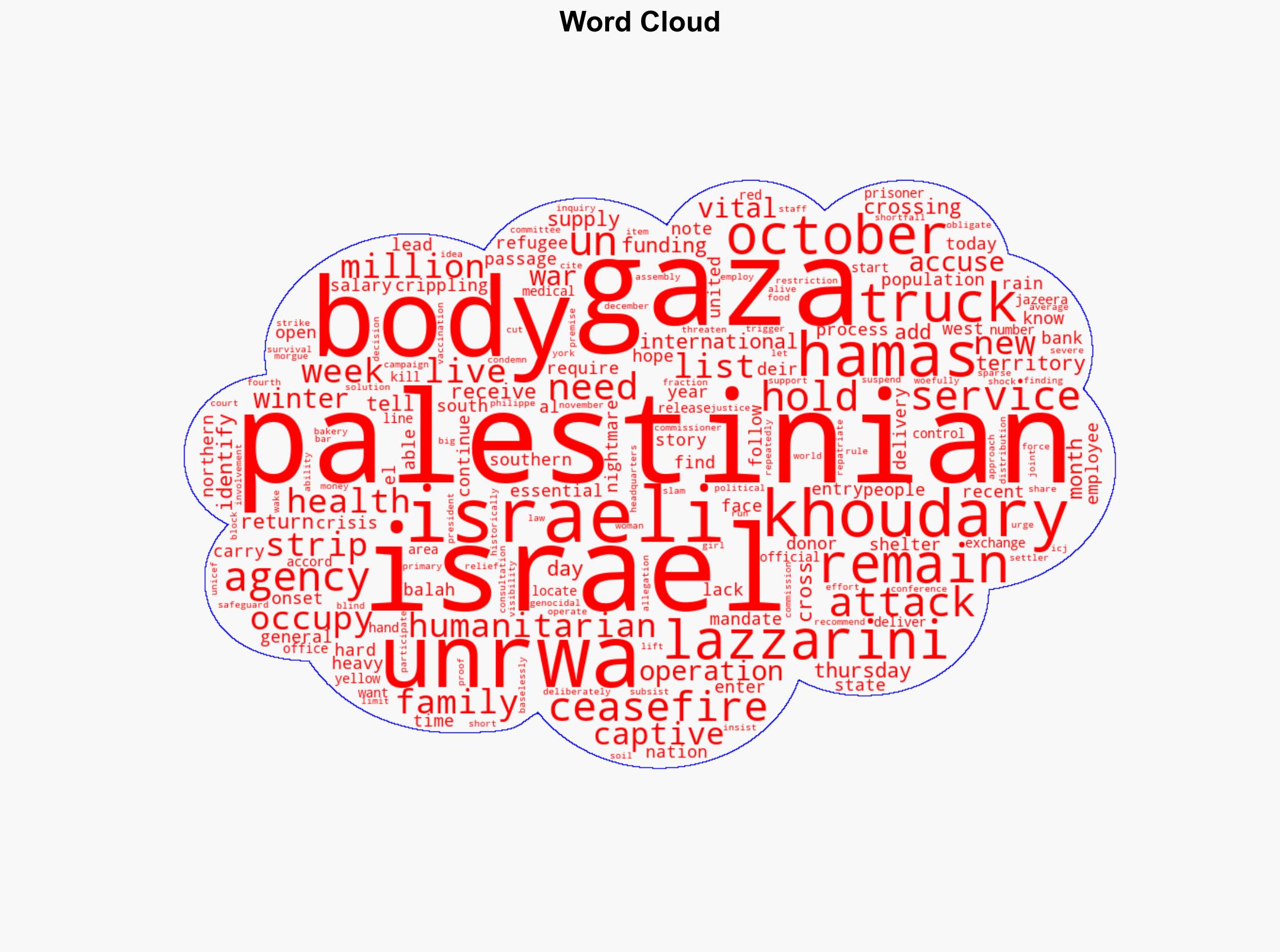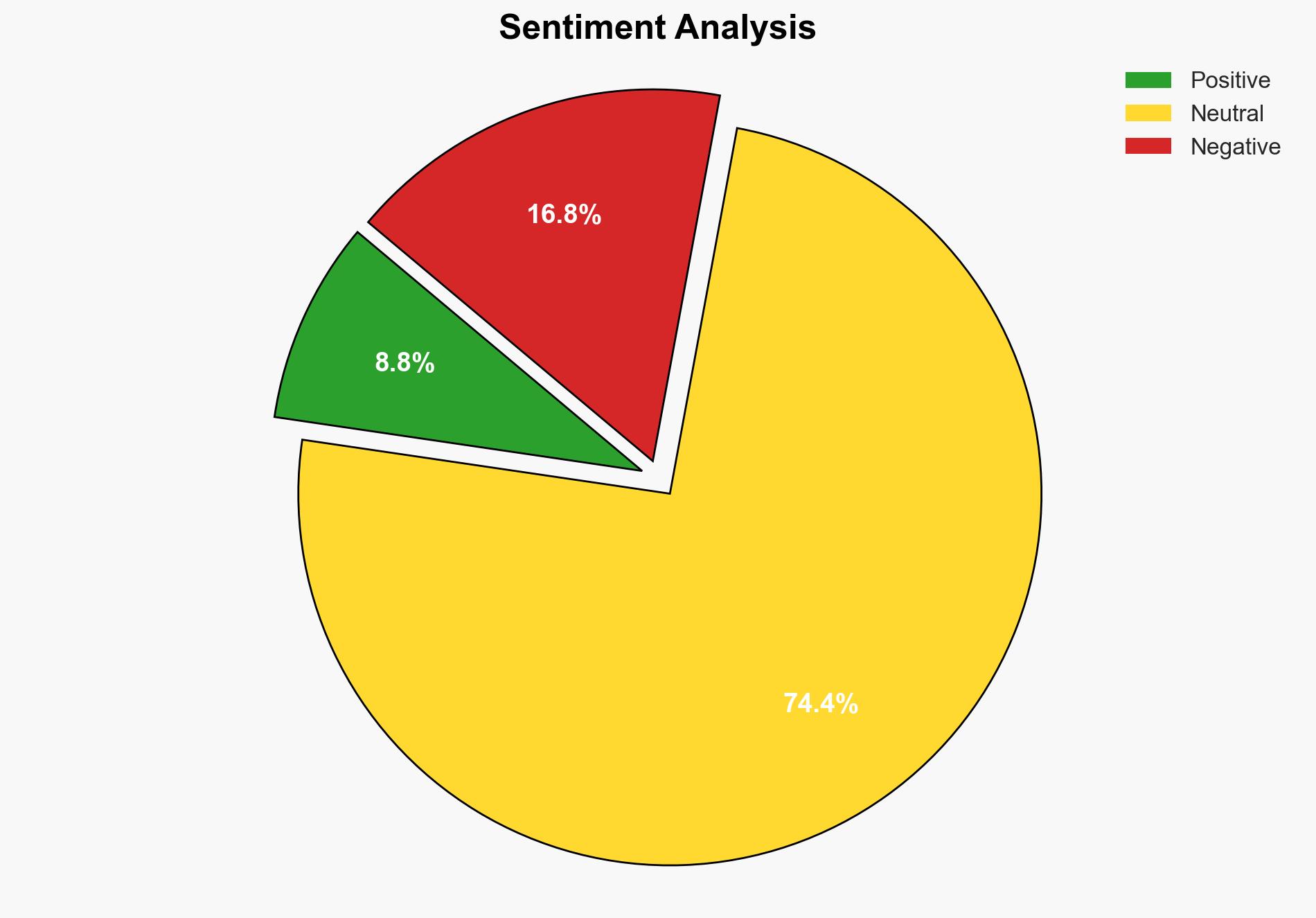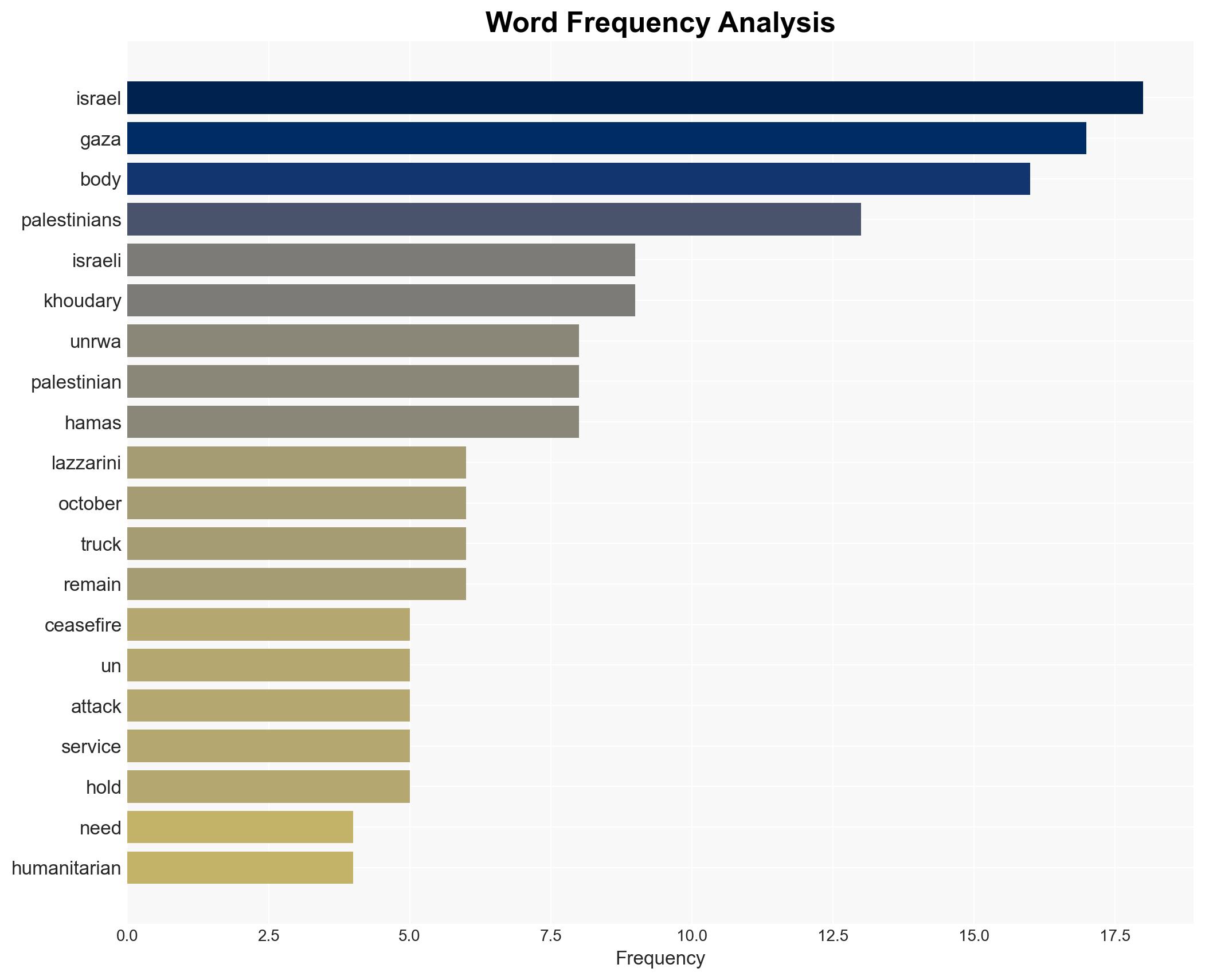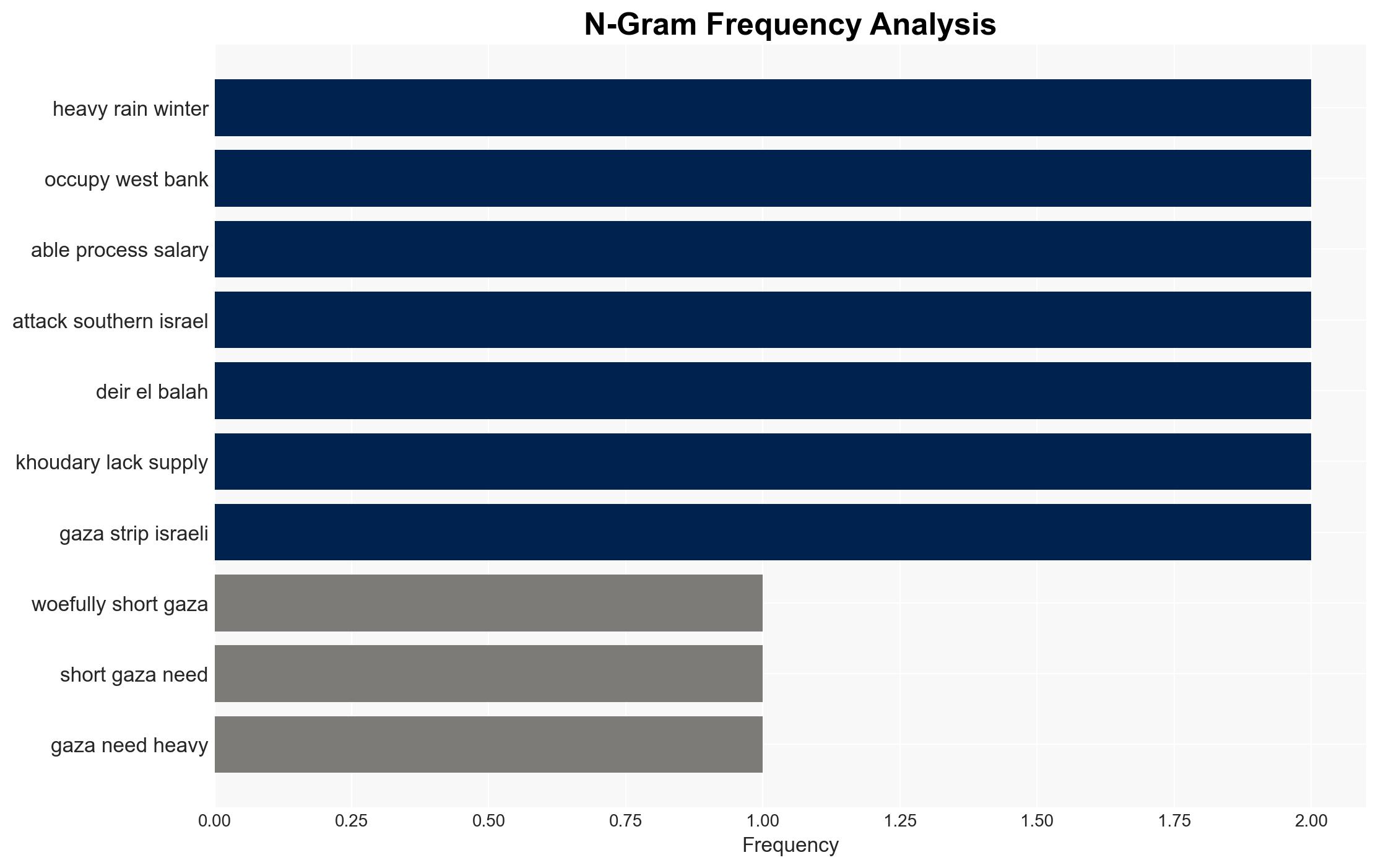UNRWA slams Israel for crippling Gaza efforts aid woefully short of needs – Al Jazeera English
Published on: 2025-11-14
AI-powered OSINT brief from verified open sources. Automated NLP signal extraction with human verification. See our Methodology and Why WorldWideWatchers.
Intelligence Report: UNRWA slams Israel for crippling Gaza efforts aid woefully short of needs – Al Jazeera English
1. BLUF (Bottom Line Up Front)
With a moderate confidence level, the most supported hypothesis is that Israel’s actions are primarily driven by security concerns rather than a deliberate attempt to cripple humanitarian efforts. However, the situation is exacerbated by insufficient international funding and logistical challenges faced by UNRWA. Strategic recommendations include diplomatic engagement to ensure humanitarian access and increased international funding to UNRWA.
2. Competing Hypotheses
Hypothesis 1: Israel is deliberately restricting aid to Gaza to exert political pressure and weaken Hamas, using security concerns as a pretext.
Hypothesis 2: Israel’s restrictions are primarily motivated by genuine security concerns following recent conflicts, with unintended consequences on humanitarian aid delivery.
Assessment: Hypothesis 2 is more likely given Israel’s historical emphasis on security and the lack of concrete evidence supporting deliberate obstruction beyond security measures. The persistent security narrative aligns with Israel’s past actions and statements.
3. Key Assumptions and Red Flags
Assumptions: Israel’s security concerns are genuine and not a cover for political objectives. UNRWA’s funding shortfall is due to international donor fatigue rather than political alignment shifts.
Red Flags: Accusations of UNRWA staff involvement in attacks, if substantiated, could justify Israel’s restrictions. Conversely, lack of evidence for these accusations suggests potential bias or misinformation.
4. Implications and Strategic Risks
The ongoing restrictions and funding shortfalls could lead to a humanitarian crisis, increasing regional instability. Political tensions may escalate if international actors perceive Israel’s actions as disproportionate. Cyber and informational threats may arise from both state and non-state actors exploiting the situation to further their agendas.
5. Recommendations and Outlook
- Engage in diplomatic efforts to negotiate humanitarian corridors ensuring aid delivery while addressing Israel’s security concerns.
- Encourage international donors to increase funding to UNRWA to prevent service disruptions.
- Best-case scenario: Successful diplomatic negotiations lead to improved aid flow and reduced tensions.
- Worst-case scenario: Escalation of conflict due to humanitarian crisis and increased political tensions.
- Most-likely scenario: Continued restrictions with intermittent aid flow improvements, maintaining a precarious status quo.
6. Key Individuals and Entities
Philippe Lazzarini (UNRWA Commissioner-General), Marco Rubio (U.S. Secretary of State), UNRWA, Israeli Government, Hamas.
7. Thematic Tags
Counter-Terrorism, Humanitarian Aid, Middle East Politics, International Relations
Structured Analytic Techniques Applied
- ACH 2.0: Reconstruct likely threat actor intentions via hypothesis testing and structured refutation.
- Indicators Development: Track radicalization signals and propaganda patterns to anticipate operational planning.
- Narrative Pattern Analysis: Analyze spread/adaptation of ideological narratives for recruitment/incitement signals.
Explore more:
Counter-Terrorism Briefs ·
Daily Summary ·
Support us
·





